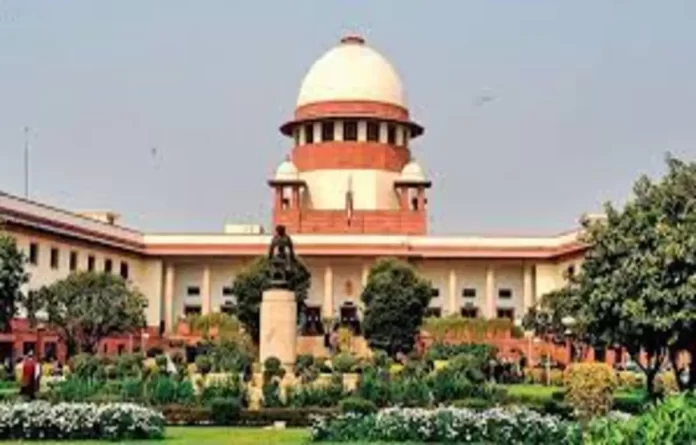The Supreme Court on Wednesday reserved its verdict on a batch of pleas seeking complete cross-verification of votes cast using Electronic Voting Machines (EVMs) with Voter Verifiable Paper Audit Trail (VVPAT).
During the hearing, when Advocate Prashant Bhushan raised questions on whether or not the chips used in the EVMs are reprogrammable, the Supreme Court said it cannot usurp the role of another constitutional authority and control the elections.
Apparently asking if the court can issue a mandamus on the basis of a suspicion, Justice Dipankar Dutta stated that the report that petitioner’s counsel is relying on says that there is no incident of hacking yet. The Justice added that they are not the controlling authority of another constitutional authority and hence, cannot control the elections.
Earlier in the day, the court had asked the Election Commission to answer its questions regarding cross-verification of the votes cast in EVMs with VVPAT. The election officials were asked to reply to the question by 2 pm.
The question laid down by the bench were: Is a micro controller installed in the control unit or VVPAT, and is micro controller one time programmable? Stating that the EC referred to symbol loading units, the bench asked how many of those are available. Pointing out that EC said the limitation period for filing election petition is 30 days so EVMs are kept for 30 days and according to the representation of peoples act it is 45 days, the court sought clarification on the same. The bench further asked whether EVM, VVPAT, control units are stored together or kept separately?
Responding, the ECI stated that all three units, ballot units, vvpat and the chip all have their own micro controllers and these micro controllers are housed in secured place, and that it cannot be accessed. It added that all the micro controllers are one time programmable and the program is burnt when they are manufactured and they can never be changed. It also said that the number of Symbol Loading Units (SLU) ECIL and BHEL are two manufacturers. Furthermore, it also clarified that EVMs are stored for 45 days in a strong room.
Nonetheless, Prashant Bhushan argued that the flash memory of the control units can be reprogramed. Considering the response, the Supreme Court said that they are not saying flash memory cannot be programmed. Addressing the petitioner’s counsel, the court said that if he is predisposed about a thought process then they cannot help.
Earlier on April 8, 2019, the Supreme Court directed the electoral commission to raise the number of EVMs subjected to VVPAT physical verification from one to five per assembly segment in a Lok Sabha constituency.


